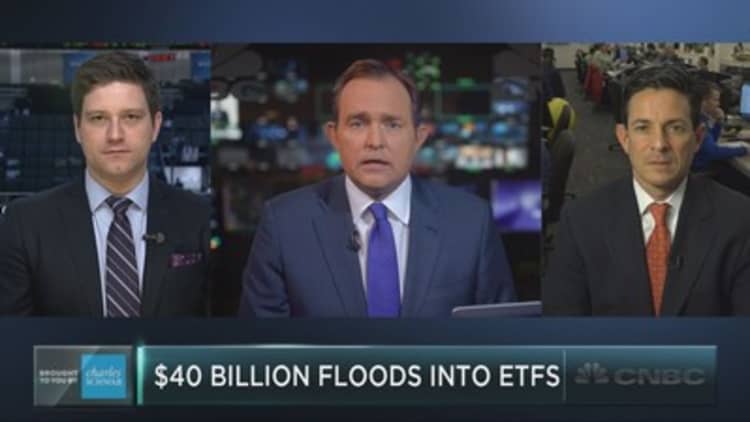
More than $40 billion has flowed into equity exchange-traded funds since the election, according to recent Thomson Reuters Lipper data.
And that could signal upside for the market, according to strategists who don't yet see a market "top" in sight.
"The overall health [of the market] is an A plus," Chad Morganlander, portfolio manager at Stifel Nicolaus, said Friday on CNBC's "Trading Nation."
Morganlander, bullish on equities at these levels, cited analysts lifting growth and earnings forecasts for next year and beyond. He and his firm have upgraded long-term returns to anywhere from 6 to 7 percent, up from about 5 percent, and have upgraded their 2017 GDP outlook to 3 percent from 2.75 percent as well.
Since the election, the major indexes have surged; the , Dow Jones industrial average and Nasdaq Composite have gained over 5 percent, nearly 8 percent, and 4 percent in that time, respectively. Analysts see several forces at work pushing the markets to record highs in recent weeks.
"This rally is tied to Trump's business-friendly campaign promises of lower corporate taxes, less regulation and a bump in infrastructure spending," Pat Keon of Thomson Reuters Lipper wrote in a recent report on U.S. fund flow data.
What's more is that, according to Thomson Reuters Lipper data, last week marked the fourth straight week of net inflows for equity ETFs.
Indeed, the prospect of infrastructure spending has Phillip Streible, senior market strategist at RJO Futures, bullish on equities at these levels.
"When you see infrastructure spending being promoted … you also see tax cuts on businesses. … You're going to see that expansion across the board here, and that flow of funds is going to happen," Streible said Friday on "Trading Nation."
Alas, these gains have come at the expense of the global bond market, which in November saw record outflows.
"So it was a reallocation of funds, and I wouldn't be surprised if we see a continuation back to the upside," Streible said.





